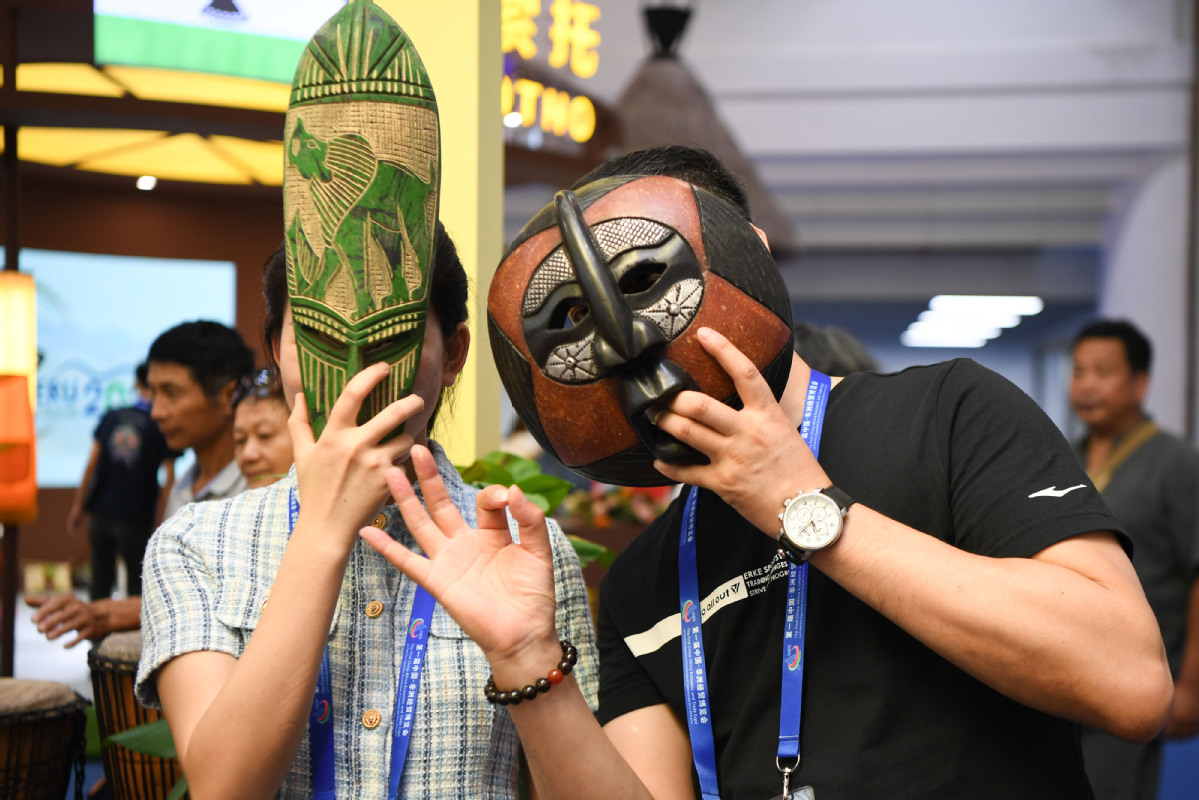Chinese enterprises help boost trade ties with Africa


Bilateral relations get impetus from strong economic partnerships
When Luo Qi first set foot on the African continent in 2012, he had no idea that he would spend the next seven years making his company one of the top three Chinese construction machinery exporters in Africa.
"Back in 2012, every time we sought to make a deal, we had to spend hours giving a detailed introduction of our company and the local team. Now that we have already made a name in Africa, we only need to tell about our equipment's quality and functions," said Luo Qi, the regional manager for southern Africa at Zoomlion Heavy Industry Science & Technology Co, a leading Chinese construction machinery maker.
Over the past 10 years, Changsha, Hunan province-headquartered Zoomlion has taken part in several key projects in Africa, including the Algerian East-West Highway Project, Djama Grand Mosque Project, Algerian Capital Airport New Terminal Project and South Africa World Cup Stadium Project, providing strong support for African infrastructure construction.
So far, the company has sold around 4,000 machines to various African countries, including Algeria, Tanzania, Kenya, Nigeria, Ethiopia, Namibia, Zimbabwe, Angola and Cameroon. It has two subsidiaries in South Africa, offices in Algeria and West Africa, and spare parts warehouse in Algeria and Johannesburg, South Africa.
"In Africa, we have a localized service team of more than 50 members, providing local customers with one-stop services covering sales, service, technology, and financing," Luo said.
China-made products and services have made a name for the high quality, competitive price and the better after-sales services, occupying an increasingly large market share in Africa, Luo said.
The past decade has seen a marked advance in China-Africa economic and trade cooperation. Chinese firms, such as Zoomlion, have shown remarkable competence in sectors such as manufacturing, infrastructure and engineering, with benefit of tried-and-tested business models which bear similarities to the African marketplace.
China has been the largest trading partner for Africa for 10 consecutive years. Last year, bilateral trade volume amounted to $204.2 billion, up 20 percent year-on-year, statistics from the Ministry of Commerce showed.
By the end of 2018, more than 3,700 Chinese companies had been set up in Africa, with combined direct investment exceeding $46 billion. The turnover of the contracted engineering projects completed by Chinese companies reached $517.26 billion by 2018.
"With an integrated infrastructure industrial chain, advanced technologies, professional management and rich experiences, China has built a wide range of infrastructure projects that help benefit the livelihood of local people, create jobs and boost the local economic development," Chen Fei, vice-governor of Hunan province, said during the ongoing first China-Africa Economic and Trade Expo in Changsha, Hunan province.
Li Yong, director general of the United Nations Industrial Development Organization, said sustainable industrial development is important for Africa's economic development, and only with the combined efforts from various parties can Africa achieve the goals articulated in the key policy framework adopted by African leaders.
Li said the organization is making progress together with efforts from partners like China, such as supporting the construction of four pilot industrial parks in countries like Ethiopia.
Charles Kayonga, Rwanda's Ambassador to China, said his country has benefited from the China-Africa economic relationship. "China has helped us at the political, social and economic level. We have also benefited in infrastructure," Kayonga said.




































